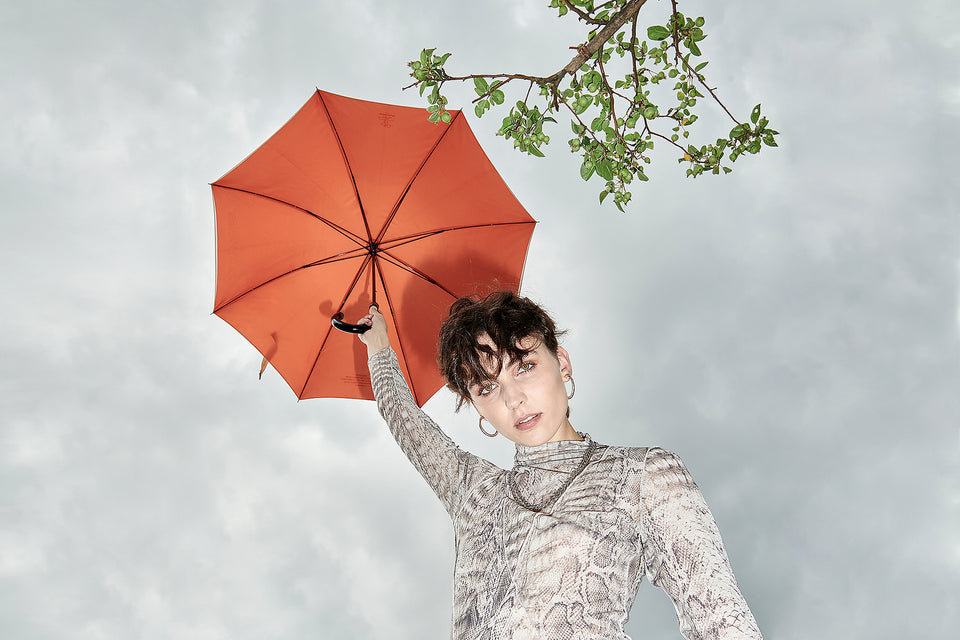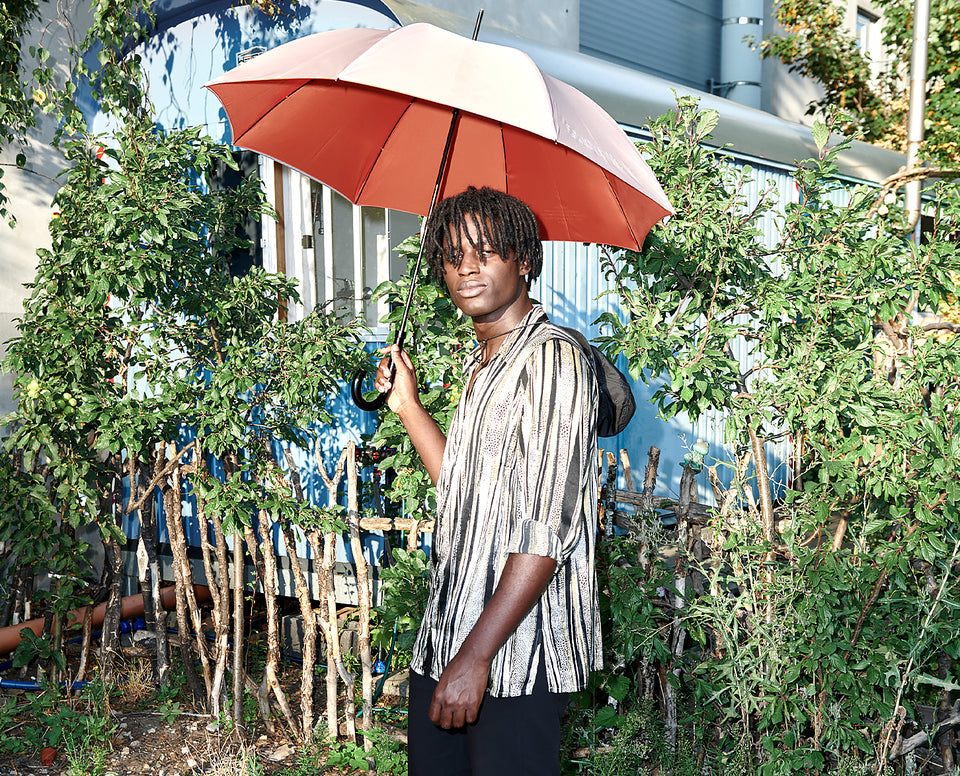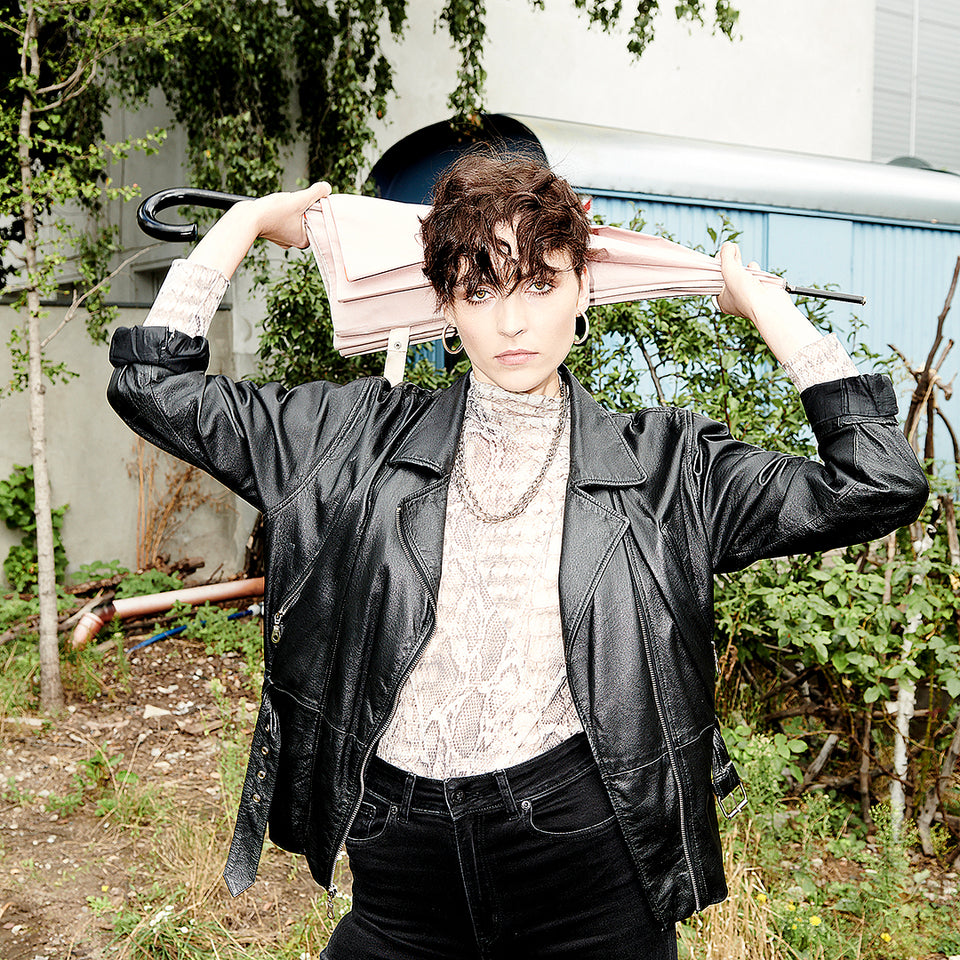<transcy>Studio Wetter</transcy>
Did you know that people with umbrellas are perceived as particularly smart, sexy and humorous? Neither do we until we read it somewhere on the internet. But it is also a fact that over a billion umbrellas end up in the trash every year.
That is why we, Carla, Larissa and Ramona are working on umbrellas that combine sustainability, longevity and sexy design. This resulted in the Studio Wetter Trocken collection.
<transcy>sustainability</transcy>
The topic of sustainable consumption has kept us busy in recent years. We see our umbrella as a small cog in a large movement that advocates conscious consumption and the sustainable use of our resources. That is why we produce in a climate-neutral manner and together with ClimatePartner offset the unavoidable emissions from production.
We use recycled materials for our products, such as polyester made from 100% recycled PET bottles for the cover and particularly durable alternatives for the frame.
Our umbrellas are packed and shipped by MOSAIK, a company for people with disabilities. Our filling material consists of corn starch and is 100% biodegradable.
Our umbrellas are produced in China as there are no longer any European umbrella manufacturers. After a long search, we have found a reliable BSCI-certified partner who shares our requirements for quality, sustainability and fair working conditions.
As a company, we try to act as sustainably as possible in all areas and to act transparently and fairly.
<transcy>Social Plastic</transcy>
With every umbrella sold, we support the Plastic Bank project, in which collected plastic is exchanged for money and essential goods
Over 8 million tons of plastic waste end up in the ocean every year - one dump truck per minute. By 2050 there will be more plastic than fish in the oceans. In developing countries in particular, huge amounts of plastic waste are created by packaging and a lack of infrastructure for disposing of waste. This garbage collects on land and gets into the sea very quickly via rivers and wind.
Money for plastic - that is the approach of this project to prevent that. In Haiti, Indonesia and the Philippines, garbage collectors can earn their income this way. Anyone can collect plastic waste there and exchange it for money, food, drinking water, cell phone credit, cooking oil or even school fees at the local Plastic Bank collection points. The exchange value is higher than the actual market value of the plastic, so that the local people can really make a living from it.
This project means that plastic does not even end up in the sea. It is recycled and processed into so-called social plastic, which is then recycled into new products.



